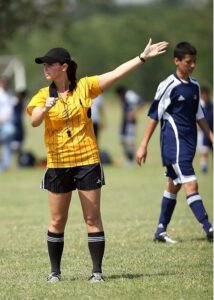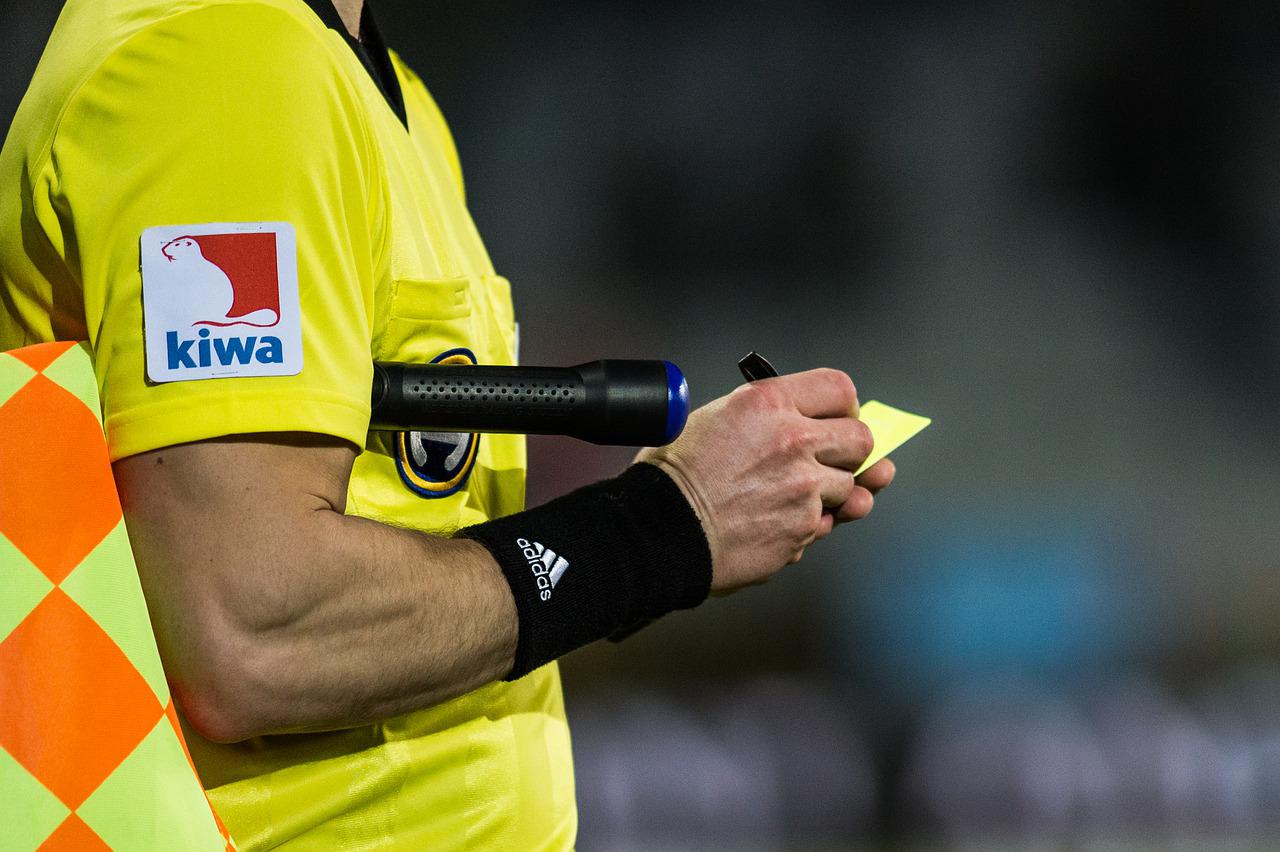Welcome to the world of sports officiating! Many of us develop an interest in this field after years of following sports, reading a betting sites review here and there and placing bets, eventually feeling that it might be our true calling. Being a sports referee comes with significant pressure and responsibilities, but it can also be incredibly rewarding. In this guide, we’ll explore the various responsibilities that referees have.
The match
The referee’s role is to ensure that the game is played according to the laws of the game. In particular, they oversee substitutions, yellow and red cards, goal kicks and throw ins.
The referee is the only person who can stop play to deal with an incident on the pitch, and they are also responsible for interpreting and applying those laws in order to make decisions.

As a referee, your job is to make sure that the game is played in a fair and controlled manner. You must be impartial and make decisions quickly. When you’re officiating a match, the first person to enter the field of play should be you. When the whistle blows for halftime or for the end of a match, your responsibility is to ensure that everyone leaves the field appropriately. You must make sure no one enters or leaves until all players have left and there is an appropriate amount of space between them and their fans.
When it comes time for someone else to enter—whether it’s a coach, doctor or other staff member—a referee or one of the assistants are responsible for identifying them before they can gain access to your players or spectators.
Assistant referees only make decisions when the referee cannot see an incident, such as offside or whether or not a player was in an offside position at the time of a goal being scored.
Video assistant referees (VARs) are used to help match officials review decisions on the pitch during football matches.
Signals and Responsibilities
You know that referees have a lot on their plate. They have to watch what’s happening on the field and make calls as necessary. The signals they use are called “hand signals.” Here are some of them and although they may be similar, each sport has its own rulebook and unique hand gestures:

Foul: A hand or fist raised up with palm facing forward means that a foul has occurred on the field.
Offside: A straight arm held out horizontally while bent at elbow level signifies an offside violation by one team member who was spotted moving forward without possession during active play (such as kicking).
Travelling in basketball: the referee rotates their fists in a circular motion in front of their own body.
Referees must be aware of any special rules applying in the competition they are taking charge of and must be prepared to deal with any situation that might arise during the game. They must have a good knowledge of:
- The laws of the game
- The players’ behaviour (e.g., pushing or holding an opponent and their tendencies to play dirty)
- Injuries sustained by players during a match; how long these injuries last; how such injuries can be treated safely on site; what equipment will help treat them (e.g., splints).
So consider a sport you either like playing or watching, and maybe you are the right person to keep the game fair, and pass unbiased judgment as a sports official.

